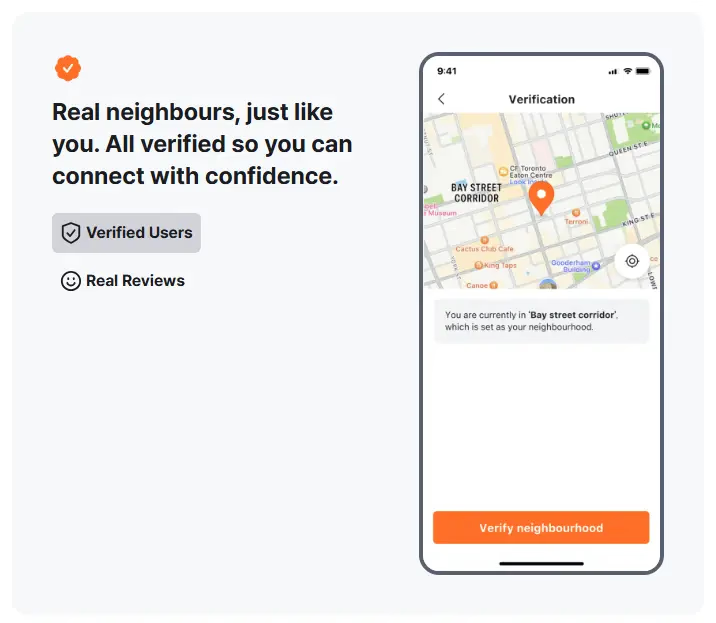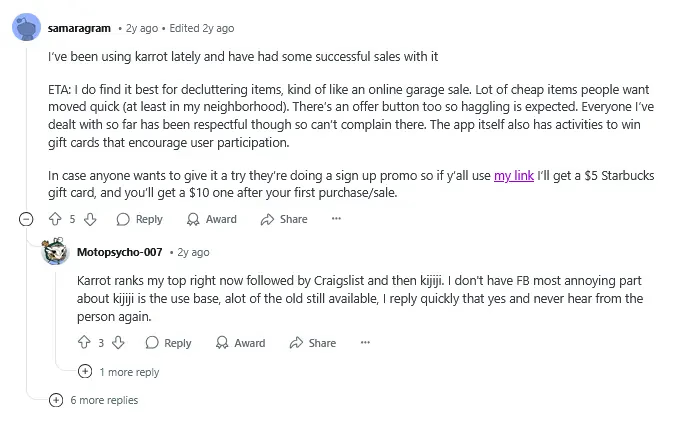
February 2025 brings exciting news from Karrot! Karrot, the global service from Korea’s popular Danggeun Market, has triumphantly surpassed 2 million users in Canada, firmly establishing itself in the North American market. The past three years since establishing the Canadian corporation in 2021 have been a whirlwind. This is a remarkable feat for a homegrown Korean service, conquering unfamiliar territory and outperforming established global players.
Was this incredible success simply a stroke of luck, or just perfect timing? How did Karrot manage to take root and flourish in the North American secondhand marketplace?
🗺️ Localization: Going Beyond Simple Translation to a ‘Custom-Built’ Strategy
In the global market, localization isn’t optional—it’s essential. Karrot diligently followed this principle. However, Karrot’s localization strategy goes far beyond simply translating the service’s language. The key is that they deeply considered Canada’s geographical characteristics, cultural nuances, and user behaviors, implementing a strategy that feels truly ‘custom-built’ for the market.
Vast Canada: Expanding the Definition of ‘Neighborhood’

Canada is a REALLY big country. With a landmass of approximately 10 million square kilometers, it’s the second-largest country in the world after Russia. Yet, its population density is incredibly low, around 4 people per square kilometer, significantly lower than the global average of 56.5 people per square kilometer. Approaching it with a Korean-style ‘neighborhood’ concept would be a recipe for disaster.
Karrot accurately recognized this and drastically expanded the tradable radius, setting it up to 50km, much wider than the domestic Korean standard. In Korea, that’s not what you’d consider your neighborhood, right? This smart decision perfectly reflects the Canadian lifestyle, where car dependency is high and residential areas are more spread out. Furthermore, focusing on English-speaking regions outside of Quebec was a strategic move to lower language barriers and concentrate on initial market penetration.
‘Manner Temperature’ Replaced with ‘Karrot Score’: Adapting to Cultural Codes
The Korean ‘Manner Temperature’ system, frankly, can be quite unfamiliar to foreigners. This metric, referencing the ideal human body temperature of 36.5°C, is difficult to grasp without understanding the cultural context. Karrot smartly read the cultural codes of North American users.

They introduced ‘Karrot Score,’ a straightforward scoring system out of 1,000 points, removing any potential cultural barriers and making the service more approachable. Changing the name to ‘Karrot,’ and overhauling the scoring system—these small details collectively make a huge difference. Moreover, the AI-powered image analysis for automatic post creation was another excellent move to enhance user convenience for the local market.
Recruiting Local Experts: Building ‘Local’ Leadership

No matter how brilliant a strategy is, it can become just empty talk without ‘people’ who genuinely understand the local market. Karrot didn’t overlook this. Co-founder Yong-hyun Kim himself went to Canada to oversee operations, and they recruited Robert Kim, a local e-commerce expert, as CEO.
Deep understanding of the local market, quick decision-making, and a local network—recruiting Robert Kim as CEO was likely a pivotal factor in Karrot’s Canadian success. Designating Toronto as an engineering hub to accelerate technology localization is also a crucial strategy for securing long-term growth momentum.
🤝 Trust: Building the ‘Foundation’ of an Online Platform
What’s most crucial for an online secondhand marketplace platform? More than anything, it’s trust, right? In an online space where you’re buying and selling goods with strangers, trust is the bedrock. If it crumbles, the platform itself can hardly survive. Karrot successfully built a community on this foundation of ‘trust.‘
GPS Verification: Cultivating Trust Within the ‘Neighborhood’

Karrot actively utilized a GPS verification system, a strategy to narrow the ‘distance’ between users and build ‘trust.’ While existing platforms like Facebook Marketplace and Kijiji struggled with scammers hiding behind anonymity, Karrot provided a reliable guide with GPS verification, alleviating user anxiety and steadily building trust.
AI Fraud Prevention: Ensuring ‘Safety’ Behind the Scenes
Beyond the visible GPS verification system, Karrot prepared a robust invisible hand: AI-based fraud prevention technology. Their AI fraud detection system, meticulously analyzing posts and user patterns, reportedly set a higher risk detection threshold for North America, considering the market characteristics. This intelligent system proactively addresses prevalent fraud types in the region, such as credit card skimming and virtual account scams. These technological efforts have been instrumental in instilling the belief in users that ‘Karrot is safe.’
🚀 Growth: From Securing a ‘Beachhead’ to a ‘Differentiation’ Strategy
Karrot’s success wasn’t just ‘luck’; it’s the result of meticulously planned strategies and bold execution. From the initial market entry phase to expansion and differentiation from competing platforms, Karrot followed a textbook roadmap for successful growth.
Targeting Key Cities: Finding a Path in ‘Toronto’
Jumping into a market as vast and diverse as Canada all at once would be reckless. Karrot opted for a ‘selection and focus’ strategy. They strategically expanded market reach step-by-step, using major cities like Toronto, Vancouver, and Calgary as beachheads. Toronto, in particular, was the core stronghold for North American expansion. Its high population density, vibrant economic activity, and diverse cultural background all contributed. Building success in Toronto first and then expanding to other cities was a highly effective strategy.
Differentiation from Competitors: Winning with ‘Cleanliness’ and ‘Safety’

Existing C2C platforms were plagued by excessive ads and persistent scam issues, leading to user fatigue. Karrot expertly seized this opportunity. By emphasizing a ‘clean UI/UX’ and a ‘rigorous security system,’ they differentiated themselves from existing platforms. Reddit user comments like, “Karrot is more intuitive and has fewer scams than Kijiji,” are a clear example of how Karrot’s differentiation strategy resonated with users.
📊 Data: A ‘Compass’ for a Successful Voyage
Karrot doesn’t rely on gut feeling marketing; they pursue data-driven, scientific operations. They meticulously analyze user behavior data and leverage it to improve services and provide personalized experiences.
Karrot reportedly developed a customized recommendation algorithm by analyzing various data points from Canadian users, such as average usage time and preferred categories. Expanding delivery options based on data showing a higher proportion of large furniture transactions in low-population density areas is a prime example of data analysis leading to tangible service improvements. Data acts as a compass, uncovering hidden user needs and guiding the creation of better services.
🚀 Future: Aiming for Global No. 1, Beyond North America
Karrot’s success in Canada isn’t just another success story. It’s a positive example showing that even a homegrown Korean service can achieve global success with thorough localization strategies, building trust-based communities, and data-driven operations, coupled with robust strategies and execution.
Of course, there are still many mountains to climb. Diversifying revenue models, entering the US market, and strengthening technological infrastructure are just some of the challenges ahead. The US market, in particular, is a market of immense scale, incomparable to Canada, and filled with formidable competitors. However, considering the strategies Karrot has demonstrated so far, wouldn’t it be reasonable to expect them to succeed in the US market as well?